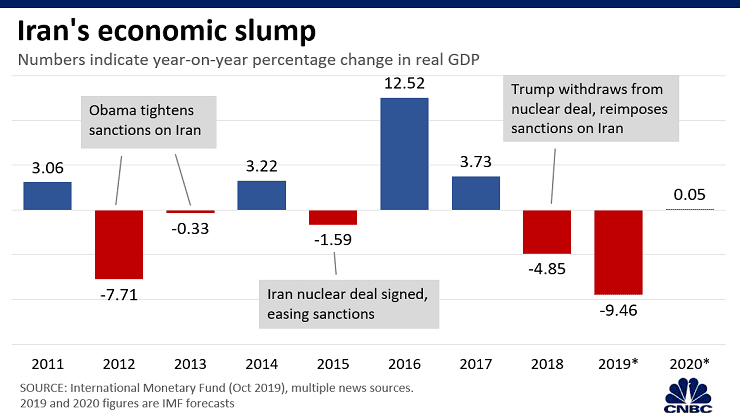One narrative mentioned often is that Iran has been emboldened to act because of the money involved in the nuclear arms deal. I am not discounting that the said money hasn't been at least partially spent on Iranian proxies. But that isn't the only thing pushing Iran, and Mike Pence admitted so in the video below (go to the -1:33 mark). Pence says, "In the last six months, in the wake of President Trump's maximum pressure campaign, we have seen a rise in violence all being driven by Soleimani." It seems clear to me that Pence is suggesting that the Iranian violence is a direct result of the actions of this administration. Doesn't that seem to damage the narrative that the violence rise is timed to signing the nuclear deal?
The video is from GMA's Facebook feed, so I can't embed it. But it is at .
The video is from GMA's Facebook feed, so I can't embed it. But it is at .


